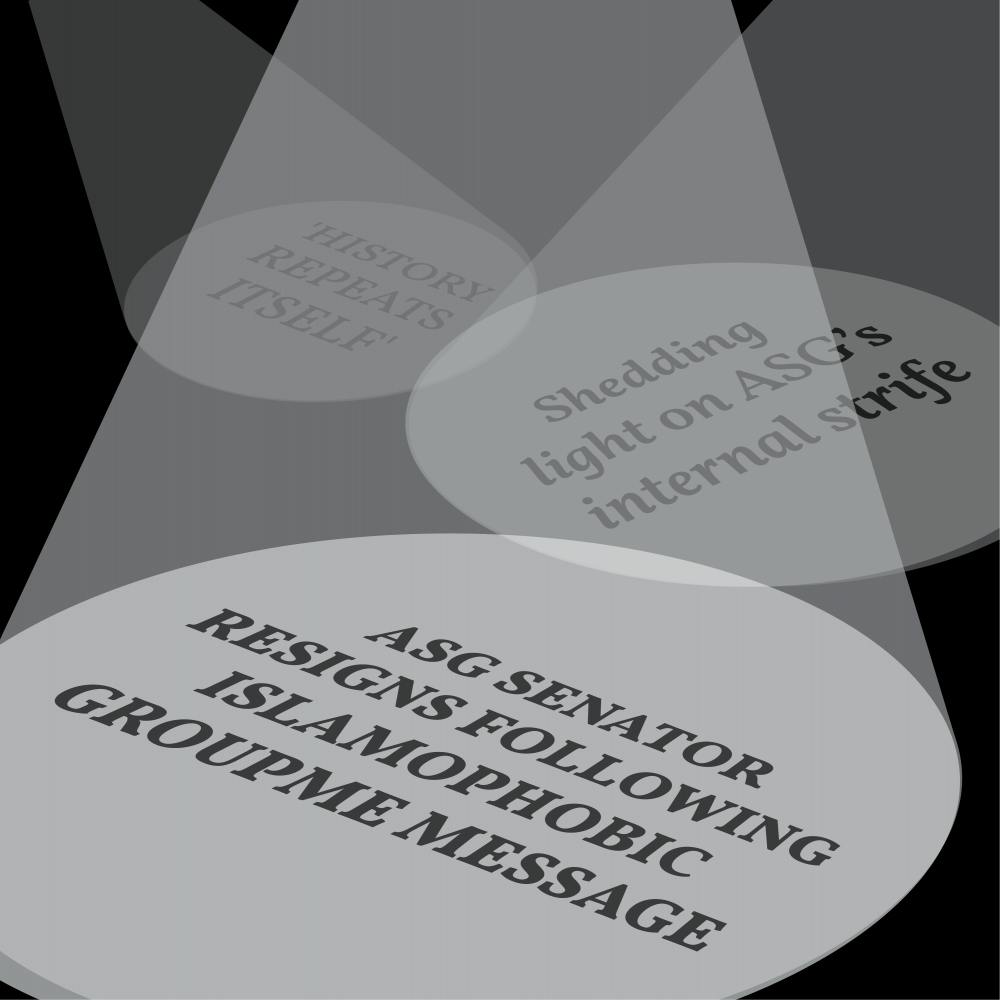Another member of Miami University’s Associated Student Government (ASG) has resigned after posting an intolerant photo in a group chat.
On-Campus Senator Maxwell Hessling posted a photo in a GroupMe chat that was not associated with ASG. The photo shows a white child in Islamic dress with a fake bomb attached to his chest. Hessling captioned the image “one of my favorite Halloween costumes lol.”
Hessling said a screenshot of his message was “taken out of context” of a broader conversation on offensive Halloween costumes and that he meant the message to be an example of what not to wear.
“I in no regard meant this as derogatory; I meant this as an informative piece,” Hessling said. “I added the ‘lol’ to show that it was a sarcastic comment.”
A few hours after the message was sent, Speaker of Senate Sarah Siegel was made aware of its contents. She and ASG Secretary of Diversity and Inclusion Brandon Small met with Hessling to discuss the message and give him resources on implicit bias and the impact of words.
“We acknowledged we didn't have any power over him,” Small said. “But we thought that as two people in leadership roles, we could have an impactful, educational conversation with him.”
After that conversation, Hessling sent a statement in the ASG Slack channel, apologizing for the message and claiming that he had donated $25o to the Council on American-Islamic Relations (CAIR), a Muslim civil rights and advocacy organization.
This is one of three incidents featuring intolerant social media posts from ASG members in one year. Last November, five ASG members resigned over a Snapchat video that surfaced of two senators singing and dancing along to a song that contained a racial slur. Last May, junior Spencer Silbey withdrew his candidacy before being sworn in as Secretary for Advancement and Alumni Affairs after backlash from a racially insensitive Snapchat post.
“I think that [these incidents] happen because people are just unaware of the impact that they can have on other people,” Small said. “Sometimes if the problem isn't like right in front of your face, it's hard to see it, and so I think that when people act this way, even if it's not explicitly out of malice. I think that it is out of ignorance, and it's indicative of a lack of understanding for those around them.”
Siegel said she thinks Hessling’s message is unrelated to the previous incidents.
“I think this is different in that [Hessling] is like seven weeks into his time on campus,” she said. “And Brandon and I both recognize that, and we wanted to give him a chance to grow.”
Hessling announced Monday that he will be resigning from ASG, citing his homework load and saying he hasn’t been able to “give the amount of time that [his] district deserves.”
Enjoy what you're reading?
Signup for our newsletter
While ASG does not have any specific guidelines regarding its members’ social media presence, section 502 of ASG’s bylaws states that “no member of the Associated Student Government shall participate in any act of discrimination or harassment” and defines harassment as “conduct that … creates an intimidating, hostile, or offensive working, educational or living environment.”
“We have to recognize that we have to respect one another. I want to be a part of a community that does that widely in the Miami community,” Siegel said.
She added that she holds everyone at Miami to standard of respect, and that she especially feels ASG senators need to meet that standard.
Mark Curnutte, a visiting social justice professor in the Department of Sociology and Gerontology who has brought Roula Allouch, the national board chair of CAIR to speak to his classes in the past, hopes this will be a learning experience for ASG.
“We all really need to be aware of our privileges, especially white people and white men,” Curnutte said. “We all know the Golden Rule: treat others as you want to be treated. This is about the Platinum Rule: treat others as they want to be treated.”
Small hopes to conduct a longer diversity training for ASG in the spring.
“It's hard to get people engaged about this sort of thing, but it's so important,” Small said. “Not only for them to be leaders, but it's important for the people around them – the people that they’re supposed to be representing. It's really just about engaging our senators with the community, and I think just fostering that cultural awareness that they might not have otherwise had.”




